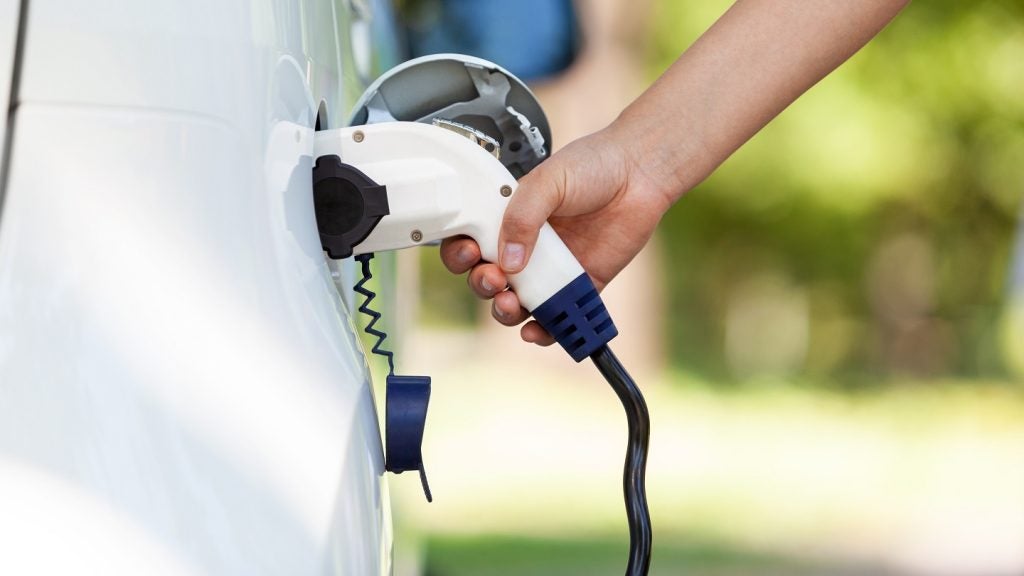
Is the growth of car clubs a
threat to traditional finance providers? Ivan Castano
reports.
Market leading car club operator
Streetcar claims that its membership numbers are tripling every
year. It aims to steal 5% of certain large cities’ consumer car
markets by 2020.
Car clubs are clearly a growing
phenomenon, but how much of a threat are they to traditional car
dealers and rental companies? While car financiers, fleet managers
and rental firms say the fledgling sector’s market share is too
tiny to challenge their fortunes, they are keeping a close eye on
developments. Some traditional car rental firms are even launching
competitive schemes to boost revenue.
How well do you really know your competitors?
Access the most comprehensive Company Profiles on the market, powered by GlobalData. Save hours of research. Gain competitive edge.

Thank you!
Your download email will arrive shortly
Not ready to buy yet? Download a free sample
We are confident about the unique quality of our Company Profiles. However, we want you to make the most beneficial decision for your business, so we offer a free sample that you can download by submitting the below form
By GlobalDataEarly days
 Paul Harrison of the
Paul Harrison of the
Finance & Leasing Association (FLA) says car clubs have a
limited effect on the car retail market because they are yet to
become a mainstream alternative for most people outside large
cities.
“Car clubs are still in their
infancy and make up a relatively small proportion of UK car sales
and therefore motor finance sales,” Harrison says, adding they have
not negatively impacted motor financing loans.
In fact, motor financing volumes
rose 26% in the first half of 2010. Harrison claims car clubs are
“good for business volumes”, since they boost demand for motor
finance among fleet operators.
Nigel Grainger, a senior consultant
with Fleet Risk Consultants, says: “Fleet operators are not being
hurt. Car clubs are not big enough to have an impact and both
sectors target different markets.”
However, fleet managers have
started to use car clubs for occasional employee use to save
parking costs for pool cars used on an ad hoc basis.
Grainger says: “The Zipcar model
can actually help a fleet manager immensely. It removes the need
for the pool car, and the company pays for the use of the vehicle
as and when it is used. Using car clubs can also save fleet
managers pool car mechanical service and other maintenance
expenses.”
However, corporate fleets often
find it uneconomical to use car clubs.
“Their workers need the cars all
the time so hiring by the hour would be too expensive,” Grainger
says.
Meanwhile employee car share
schemes are a growing in popularity. The model is “great to reduce
parking problems, cut carbon emissions and is also safer as there
are fewer vehicles on the road”, Grainger says.
The scheme works best for employees
who start and finish work at the same time and have no need to
drive during the day.
Rental rivals
Car rental companies are challenged
the most by clubs. A number of rental giants have introduced their
own pay-as-you-go car share schemes. Last year US rental giant
Hertz launched Connect by Hertz, a car club which now operates in
London, Paris and across North America.
Hertz charges an annual membership
fee and allows customers to rent a Ford Fiesta, Focus or Mini for
£3.95, £5.95 and £6.95 an hour respectively.
Members get 30 miles of free
driving and additional miles are charged at 25p. For London
drivers, the rates include congestion charge fees.
No match for
rental
 Other clubs such as Streetcar
Other clubs such as Streetcar
and Zipcar charge similar annual rates and sometimes cheaper hourly
fees though they offer a more limited range of vehicles.
Whatever the incentives, car clubs
are barely scratching the car rental market’s surface.
One industry observer put the
number of car clubs in the UK at 2,500, compared to 180,000 in the
traditional rental sector. By this measure, clubs account for just
1.3 percent of the rental market and a mere 0.1 percent of the
nearly 2 million cars sold in the UK last year.
John Lewis, chief executive of the
Car and Leasing Rental Association (BVRLA), says: “Car clubs are
another car rental variant.
“They have been successful in
opening up a new market within urban areas, encouraging many people
to give up car ownership and use vehicles on a pay-as-you-go basis.
But they are not competitor.”
Lewis says car clubs actually
generate business for their traditional rivals.
“They have helped increase business
for the wider car rental sector by convincing people they can pay
to use an appropriate vehicle as and when they need it, rather than
leaving it sitting idle for much of the week,” he says.
Car clubs also have “a positive
effect” for the leasing industry as they use them to supply many of
their vehicles, Lewis adds.
State support
Car clubs began to take off three
years ago as the credit crunch curbed consumption of big-ticket
items such as cars. As consumers scrambled to reduce living
expenses, many postponed new car purchases.
Others responded to Streetcar’s
massive marketing campaign which in 2008 saw the firm gain a huge
number of new members. Soon entrepreneurial rivals such as Zipcar,
Citi Car Club and Whizzgo appeared, aiming to tap this new
market.
The UK government, keen to meet its
CO2 reduction campaign, also poured millions of pounds
into developing parking infrastructure.
In March, London Mayor Boris Johnson
described car clubs as “a brilliant idea”.
“A quite staggering three quarters
of the UK’s car club cars are located in our great city, and
Londoners joining up have found they are able to save thousands of
pounds by avoiding all the hassle of repairs, services and insuring
their vehicles,” Johnson continued.
“Our focus now is to increase
membership in the capital’s outer boroughs and I welcome all extra
support for these cracking clubs, which are becoming indispensable
to their thousands of members.”
A recent Zipcar growth study of top
world cities found that, in the next 5-10 years, London will see
the highest club growth followed by Hong Kong with Paris, New York
and San Francisco closely behind. In the UK, Brighton, Edinburgh
and York also offer excellent potential for car clubs.
Clubs’ marketing efforts and state
support have led some commentators to predict that clubs could grow
to account for 5% of consumer car sales in some big cities. A
survey by Carplus put pay-as-you go rental savings at £1,764 a
year.
Chas Ball, policy director of club
association Carplus, says: “Peak oil and global warming are not
imaginary concepts. They will have a major effect on cars’ future
role in society.”
Future growth
According to Carplus there are
127,114 car club members in the UK, up from 22,000 in 2007. Ball
predicts car club fleets could double in three years as more people
use pool cars for business and car clubs for pleasure.
He expects the advent of electric
cars and plug-in hybrids to drive the market as people become
happier to rent not to buy.
Grainger believes that, to avoid
any losses, dealers will likely adopt the attitude of, “if you
can’t beat them, join them”.
He adds: “They are not going to
lose on this. They will simply work harder to win car club
customers.”
But Ball says the “jury is out” as
to how competitors will adapt to clubs’ challenge.
“I am not sure if the retail car
sales sector will adapt by changing from selling a product to
providing a service [similar to car clubs],” he says.
Manufacturer Daimler launched its
car club service Car2Go in 2008 in Ulm, Germany, and in Austin,
Texas. It is a pre-paid, per minute rental service offering Smart
supermini vehicles.
Harrison concludes: “Car clubs are here to stay. They are useful
for people who live in the big cities and generally travel by
public transport, but may need a car at the weekend to visit
friends and family.”







